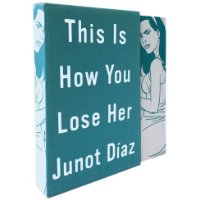Tags
art, artist, Dominican culture, junot Diaz, liberal arts education, literary fiction, masculinity, Pulitzer prize, Rutgers, writing, Yale
“You cannot be transformed when you’re afraid.”
-Junot Díaz at Yale, Nov. 12, 2013
by Rozsa Gaston for Wild River Review
 Author Junot Díaz electrified a packed room of over two hundred students at Yale on Nov. 12, 2013 with fighting words: “If you’re writing real art, no one wants your shit anyway….The point of an artist is to give people what they don’t want. The day you start giving people what they want, you become an entertainer.”
Author Junot Díaz electrified a packed room of over two hundred students at Yale on Nov. 12, 2013 with fighting words: “If you’re writing real art, no one wants your shit anyway….The point of an artist is to give people what they don’t want. The day you start giving people what they want, you become an entertainer.”
 The Pulitzer prize-winning author of The Brief Wondrous Life of Oscar Wao, This is How You Lose Her, and Drown alternately provoked and caressed his audience. Above all, Díaz engaged them, careful to take questions from different sides of the room, as well as from students spilled out into the foyer outside The Saint Thomas More Chapel at Yale University. He alternated between male and female questioners, exhibiting a sensitivity that contrasted strikingly with his frequently incendiary remarks, which did not fail to thrill. “Imagine your writing doesn’t work—99.99 per cent of us won’t be artists, because this culture hates art.”
The Pulitzer prize-winning author of The Brief Wondrous Life of Oscar Wao, This is How You Lose Her, and Drown alternately provoked and caressed his audience. Above all, Díaz engaged them, careful to take questions from different sides of the room, as well as from students spilled out into the foyer outside The Saint Thomas More Chapel at Yale University. He alternated between male and female questioners, exhibiting a sensitivity that contrasted strikingly with his frequently incendiary remarks, which did not fail to thrill. “Imagine your writing doesn’t work—99.99 per cent of us won’t be artists, because this culture hates art.”

The Dominican-American author taunted his audience of mostly undergraduates, telling them that studying creative writing or majoring in English was a waste of time if they wished to write. “If you’re an artist, what you need is material. I was a history major at Rutgers. That’s where I got Oscar Wao from,” he said, referring to his 2008 Pulitzer prize-winning book.
He challenged the roomful of Yale undergraduates, telling them “From the questions being asked, all I hear is fear. It rolls off of you in waves.” He referred to the fear of graduating and not being able to find a job, even though “You are in the top one per cent in the world.”
Deriding contemporary American views on higher education as a means of “accreditation” in order to increase a student’s employability, he described such narrow thinking as particularly harmful to artists. “A liberal arts education is not meant to be vocational. It’s meant to be transformative. You cannot be transformed when you’re afraid,” he told his rapt audience, exhorting them to write without expectation of commercial success. “Writing helps you open a deliberative space. That’s why everyone should have a writing practice.”
Asked by a student whether art should be political, he replied “All art is political. Status quo art is political.” Specifically asked about literature as a political art form, he précised, “Literature is too complicated to hew to a political platform. The subtexts will subvert what you think your message is.”
Following his forty-five minute address, Díaz patiently signed copies of his books handed to him by a long line of undergrads. He looked each one in the eye, and addressed them personally, his voice low, caressing. A few he spoke to in Spanish, sometimes with endearments such as “mi amor,” and “mi lindo.” The contrast of his warm, personable manner was even more startling following his provocative presentation. The common denominator in both was Díaz’s impassioned and engaged nature.
In his opening remarks, Díaz mentioned briefly that he wants to write a book about contemporary masculinity. The brand of masculinity Junot Díaz displayed in his Nov. 12 address at Yale combined firebrand provocation with silky smooth personal attention to and esteem of his audience.
Whatever Díaz comes up with next, I have no doubt will capture the world’s attention, leaving us startled, breathless, and gasping for more.
